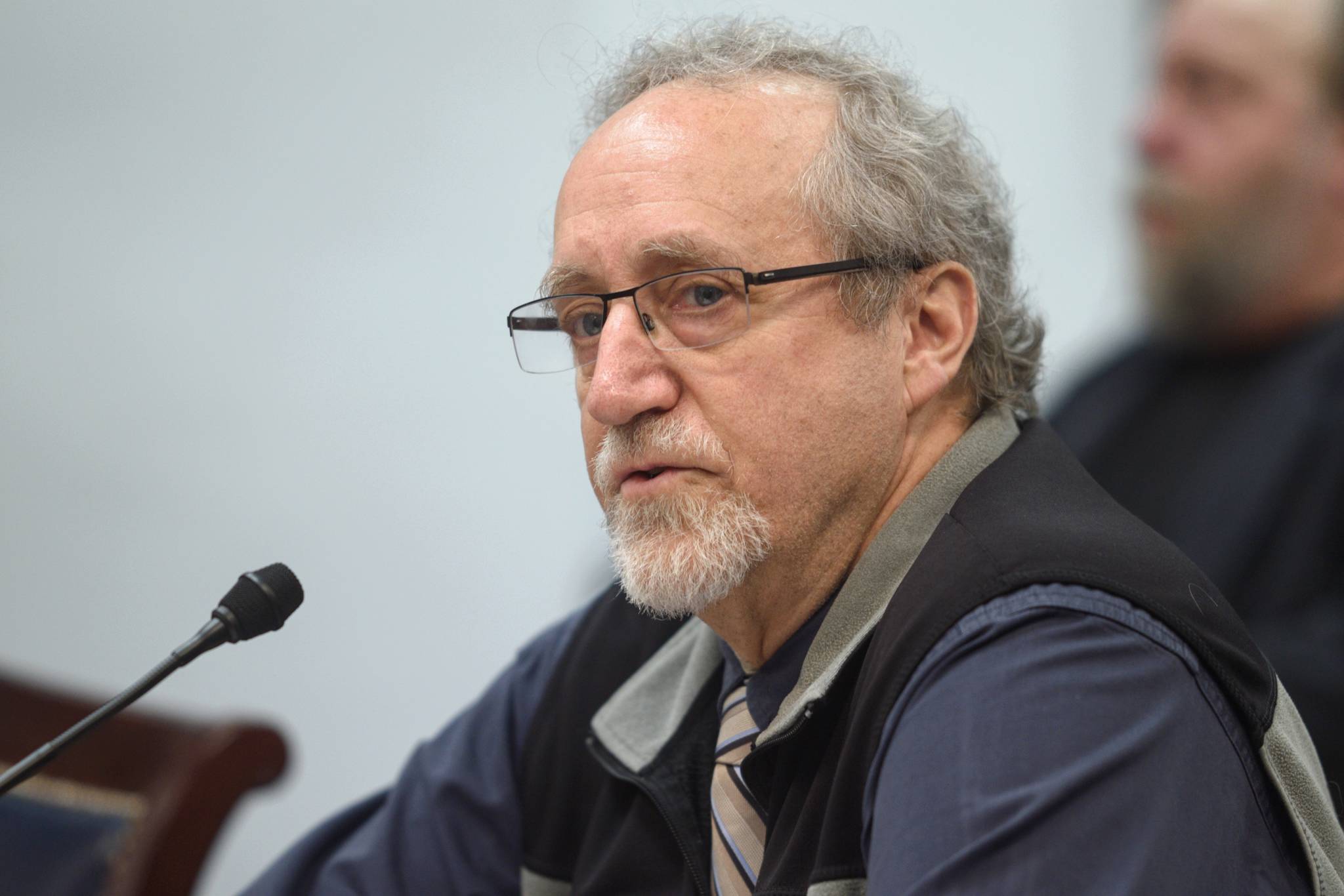Doug Vincent-Lang, the governor’s choice for the Department of Fish and Game commissioner, is midway through a lengthy confirmation process, and understands why it’s such an arduous path to confirmation: fishing and hunting are vital to Alaskans.
“They want an opportunity to know who their commissioner is and what their commissioner stands for,” Vincent-Lang said in an interview. “It’s a long, convoluted process, but it’s one that I actually enjoy because I get to talk to people about what’s important to them.”
Vincent-Lang laid out what he stands for as he spoke to the House Fisheries Committee during a confirmation hearing Thursday. Vincent-Lang, the former director of wildlife conservation for the department, said during the hearing that he’s strongly in favor of the state having more control over its resources (as opposed to them being under federal control).
Rep. Chuck Kopp, R-Anchorage, said during the meeting that Vincent-Lang’s interest in state control stood out to him.
“Obviously you have my unqualified support,” Kopp said. “I also appreciated your commitment to state management. We have seen a federal push more and more toward fish farming. They’d love to see more and more fish farms in Alaska waters and we know wild salmon don’t survive around that.”
[Controversial marijuana board appointee meets resistance in confirmation hearing]
Vincent-Lang spent more than 30 years with the department up until 2015, spending the majority of his time working in sport fishing.
Vincent-Lang has spent the past four years retired, he said, after Gov. Bill Walker dismissed him from his Division of Wildlife Conservation position in 2015. Vincent-Lang said in an interview that it was more of a mutual decision for him to depart from the job and that there were “no hard feelings.”
Looking forward, Vincent-Lang said he wants to make sure that Alaska’s fishing and hunting resources are sustainable. He said during the meeting that conservation and sustainability are “No. 1” in his mind. At the same time, he said, he also has to think about the financial impacts of his decisions.
“I find myself almost talking like an investment banker rather than a biologist, but that’s my job now,” Vincent-Lang said. “My job is to make a return on the investment that you guys put into the department.”
Rep. Louise Stutes, R-Kodiak, the chair of the committee, repeatedly encouraged Vincent-Lang to make science-based decisions and not bend to political pressures. Vincent-Lang, who has been the acting commissioner since December, told an anecdote about shutting down the Chinook salmon fishery in the Susitna River despite pressure to keep it open for catch-and-release. He also said in an interview afterward that although he has the power to make emergency orders, he would not make them for political reasons.
Last year, when he was still retired, Vincent-Lang co-authored (with nine other former state officials) an editorial that appeared in the Anchorage Daily News that was opposed to Ballot Measure 1. That ballot measure, also known as Stand for Salmon, would have changed the way salmon habitats are protected and the way development is permitted near anadromous salmon habitats.
[Salmon measure suffers resounding defeat. What happened?]
During his hearing Thursday, Vincent-Lang said he’s faced criticism for expressing this view on Ballot Measure 1.
“I did not believe Prop 1 should have been rewritten by voters,” Vincent-Lang said. “It was too complex of a process to do that. That said, I’m interested in, and I will be, directing my staff to look at elements of Prop 1 and the current Title 16 permitting authority we have to see if it can be updated.”
The role of Fish and Game commissioner spans various aspects of the state, leading to a long process of going before numerous committees. Vincent-Lang goes in front of the House Resources Committee on Thursday. He’s already gone through interviews with the Fish and Game Board in January.
Vincent-Lang was the only person to apply for the job, he said.
“Either I scared everybody off or I was the only one foolish enough to do it, I guess,” Vincent-Lang joked. “It’s a hard job. It really is.”
• Contact reporter Alex McCarthy at 523-2271 or amccarthy@juneauempire.com. Follow him on Twitter at @akmccarthy.

